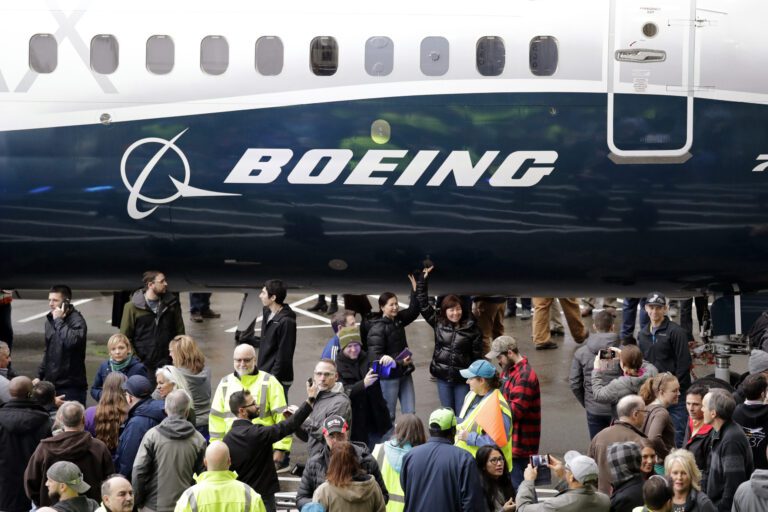Trade War Escalation: China Suspends Boeing Deliveries and Parts
The ongoing trade tension between the United States and China has intensified, as China orders domestic airlines to halt all deliveries from Boeing, the American aviation giant. This decision has significant implications for both countries and the global aerospace market.
Key Developments in the Trade War
-
Suspension of Deliveries: According to a report by Bloomberg News, Chinese airlines have been instructed to cease accepting new jets from Boeing. This includes a halt on plane parts and components sourced from the U.S.
-
Impending Deliveries: Prior to this directive, Boeing was scheduled to deliver nearly ten 737 Max aircraft to major Chinese airlines such as China Southern Airlines, Air China, and Xiamen Airlines. However, some deliveries may still occur as payments and related paperwork have been completed.
- Historical Context: This is not the first time Boeing has faced challenges in the Chinese market. Following two tragic crashes in 2019, China was the leading country to ground the 737 Max. Additionally, ongoing trade disputes between the U.S. and China have pivoted orders from Boeing to European rival, Airbus SE.
Market Reactions
-
Stock Performance: The trade suspension has affected Boeing’s stock, with shares falling by 3%, reaching $154.40 per share in pre-market trading on Tuesday.
- Impact on Chinese Airlines: The ban on spare parts could severely affect Chinese carriers reliant on Boeing aircraft, similar to the challenges faced by Russian airlines following export sanctions imposed after the Ukraine invasion in 2022.
China’s Assertive Stance
The Chinese response follows a recent increase in reciprocal tariffs, now standing at 125%, aimed at American products. This was a reaction to a 145% tariff levied by the Trump administration on Chinese goods.
Quotes from Chinese Leadership
China’s President Xi Jinping emphasized the futility of trade wars, stating:
“There are no winners in a trade war, and going against the world will only lead to self-isolation.” (Source: CCTV)
In light of these tariffs, the Chinese Finance Ministry expressed:
“Even if the U.S. continues to impose higher tariffs, it will no longer make economic sense and will become a joke in the history of the world economy.”
Looking Ahead
Potential Economic Implications
- Trade Relations: The current state of relations between the U.S. and China shows no signs of immediate improvement, with Chinese officials asserting that they will not escalate tariffs further.
Future Projections
-
Trade analysts warn that ongoing sanctions and counter-sanctions could hinder economic growth in both countries.
- Understanding this dynamic is vital for businesses relying on international trade, especially in the aerospace sector.
Conclusion
As the trade war escalates, numerous questions loom over the future of U.S.-China relations. Companies dependent on international supply chains may need to adjust strategies in light of these new developments.
For further details on the evolving trade situation, explore related articles on Trade Relations and Aerospace Market Trends.
By keeping informed, stakeholders can better navigate the complexities of international trade in these turbulent times.


